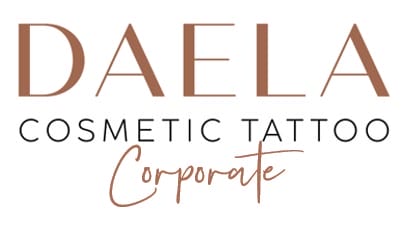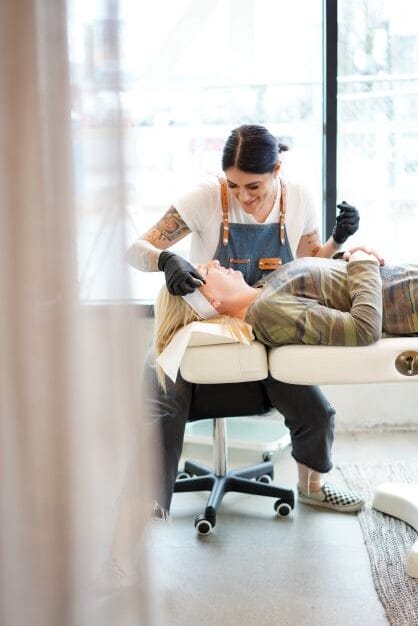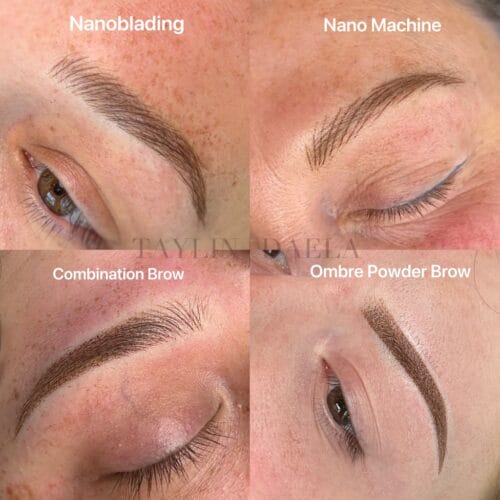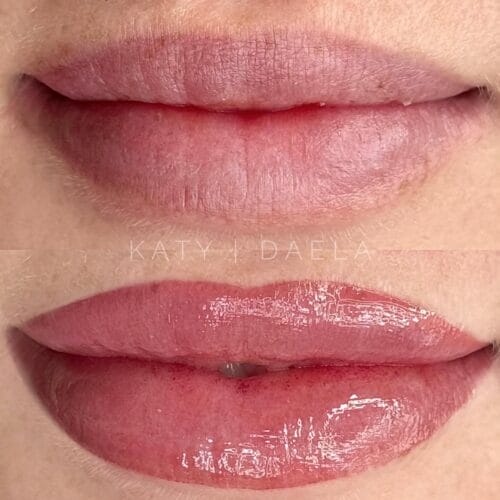First Up: Career as an Independent PMU Artist:
Cosmetic Tattoo is a growing industry. While there aren’t a lot of full-service cosmetic tattoo studios that hire artists as employees, the trend is growing as the popularity of permanent makeup continues to rise. Traditionally, one of the only ways to join this field is to do it on your own. Most artists around the nation have had no choice but to go it alone, working from a hair salon, tattoo shop or lash studio. So, let’s discuss the reality of owning your own small business vs working as an employee at a larger studio.
What is it really like to be an independent cosmetic tattoo artist?
For some people the allure of working for themselves is intriguing. It sounds fun: No one to answer to, you get to call the shots…but it doesn’t take long to figure out that owning a business is not for everyone. For most, it is simply too exhausting, and stressful. It’s not the actual work with clients that’s tiring, it’s all the other stuff that will get to you. It’s the day-to-day workload of owning and managing a business alone.
When an artist is working on a client it is all intensive for 2-3 hours. If you see the goal 4 clients a day, your day has evaporated and you haven’t done any accounting, ordered any supplies, paid any bills, returned any client calls, scheduled, and rescheduled any lingering appointments or responded to any of your Instagram or other social media posts. It can be grueling.
The flip side is when you aren’t busy enough, you may have a lot of free time, but it doesn’t take long for bills to come crashing down around you. It’s really hard to get new customers and hard to retain clients when you just can’t follow up with them quick enough.

4 Things to Understand About Your PMU Business:
1. Launch Your Business
This will be the single hardest thing you have to do and is also the defining point between success and failure. You can read hundreds of articles and studies and they all say the same, somewhere between 85%-95% of all start-ups fail. Launching your business will take more energy than running the business once you have successfully built it. The reality is that you will not have 2 new customers per day, 3-days a week, the moment you open your doors.
If you are a good social marketer and understand how to get your clientele built-up, you will also understand that you need cash resources to get you to the point where your GROSS REVENUE exceeds your BASIC EXPENSES.
Important Note: As an independent business owner that your basic expenses need to be met before you can retain any income for yourself. If you have $3600 per month in business expenses, then you need to see 6 clients just to cover those expenses.
There are about 5 major reasons for start-up failure:
-
Not enough capitol.
-
Lack of business & accounting knowledge.
-
Difficulty in gaining customers.
-
Location.
-
Lack of proper marketing.
2. Understanding Business Costs for your PMU business:
-
Start-up costs
You must invest a chunk of money to open your business.
You first have to invest money on education. The great news about PMU is that the training expense is incredibly low compared to the cost of college and the potential income is equal or greater than those who attend a 4-year college. A single training course may cost $2500-$6000 for a PMU service vs. $6000+ per year to attend a college. You can also be ready to work with a few hundred hours of practice and one or two courses vs years of college education.
Opening your shop will come with expenses. Depending on where you land you may spend $5000-$40,000 or more to open shop if you are an independent.
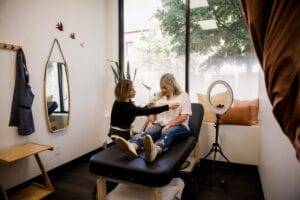
3. Understand GROSS REVENUE vs NET REVENUE
You will see a lot of training courses that advertise how much money you will make in the PMU industry. What you may not understand is that they are talking about gross revenue, not net income. They are also likely also quoting the very most successful artists, not the average artists.
Let’s look at a real-world scenario:
Let’s say you are an independent and charge $600 for your cosmetic tattoo service and that includes a touch-up. You are working from a small space or renting a room from someone. Your advertising budget is small, and your focus is on social media to gain new customers. Once they get a name for themselves, most independent artists will see 3 clients per week (Then you see them again for the touchup).
Let’s say you average 3 clients per week, 52 weeks a year. This would result in a GROSS REVENUE of $93,600 per year. You must subtract business expenses from your gross revenue. Rent, supplies, advertising, insurance, printing, website expenses, accounting expenses, licenses, health care, the list goes on. These are typical business expenses that need to be paid before you pay yourself:
- Rent
- Cost of Supplies
- Advertising
- Computer & Website Expenses
- CRM
- Merchant Service Expenses (Credit card fees)
- Health Care Expenses (Dental, Vision, Health)
For an independent, you will probably have around $3600 per month in basic business expenses.
If you are generating $93,600 per year, this equates to $7,800 per month.
Take $3600 to pay your business expenses and you are left with: $4,200 per month gross income.
4. Don’t Forget Taxes!
When you are employed, your employer follows federal and state law and has taxes pulled from your paycheck. This results in an amount that is indeed yours to keep. A trap independent business owners fall into is thinking that every dollar they bring in is theirs to keep. This is so far from the truth, but hard to grasp when you have $600 in your hand from a single appointment.
You do get to deduct every business expense from your gross revenue, and you don’t pay taxes on that portion of your income. What is left is subject to taxes: Federal taxes, state taxes, and self-employment tax. In some cases, this can equal 50% of your gross income.
There are a lot of independent businesses who don’t claim all their income, stashing cash aside and showing less, so the government doesn’t tax everything. Aside from this being illegal, it is also counter-intuitive to success. The more you earn and the more successful your business, them more likely you will be able to qualify for important landmark items like a house or a car. So, while the inclination may be to hide some of your income, the reality is that you want your business to look as strong as it possibly can. Your long-term reward will be greater.
All of this boils down to this reality: Independent permanent makeup artists make somewhere between $35,000 and $140,000 a year pre-tax income. Averages posted on the web are somewhere between $45,000 and $75,000 a year.
Next Up: PMU Artist as an Employee at a Full-Service Studio
We can’t speak for the way other full-service PMU studios operate or how they support their artists. But we can share the pros of working as an employee at a DAELA Cosmetic Tattoo Studio. There are currently 4 DAELA Studios around the nation: Portland, Vancouver, Scottsdale and Las Vegas. As our franchise locations expand, we are always looking for master PMU artists who have experienced working for themselves and are drawn to the idea of making the same or better income all while experiencing more free time and less stress. If you are an excellent artist and you want to be taken care of and you live near one of our studios, reach out to us. We always have room for greatness.

3 Reasons You’d Love to Work at DAELA:
- We have created a special atmosphere for our artists and staff at DAELA Cosmetic Tattoo. We offer a healthy work-life balance for our artists and staff.
- We offer health care, dental & vision.
- Sick and vacation pay
- Artists are paid a commission plus tips, so the more they work, the more they make. Our artists are on either a 4-day or 3-day per week work schedule. Time off is time off, aside from posting on IG.
- Collaborative atmosphere. DAELA artists all learn and grow with each other.
- Our artists have natural talent and a kind spirit.
- We are a luxury full-service studio. This means we have a full staff of support. They take all incoming calls, emails, texts. They schedule appointments, reschedule appointments, order supplies, make trays, keep the studio clean and operational. The staff is dedicated to providing outstanding customer support.
- It’s a dream job, created by artists who worked as independents and learned, by real-life, how much better it is to work in a collaborative atmosphere with a lot of support.
- You’ll get a paycheck: Taxes already out, health care covered by DAELA, vacation pay and sick pay if you need it.
It is common for an artist who has had their own independent business to come work for us. If you queried them, they would tell you they are happier, have more spare time and make just as much money, if not more. They will also tell you about how much they love to work and collaborate with the team of artists and customer support staff that surround them every day.
DAELA is expanding nationwide. There are opportunities for artists, franchise owners, and support staff. If you are interested in learning more, reach out to us.
